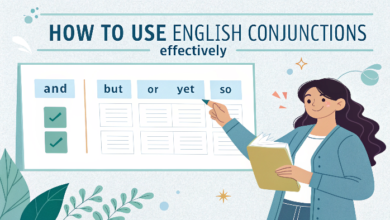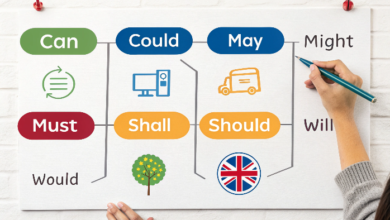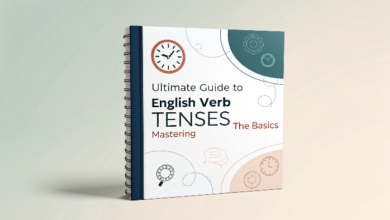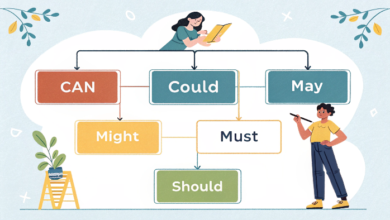Understanding English Pronouns: Personal, Possessive, Reflexive
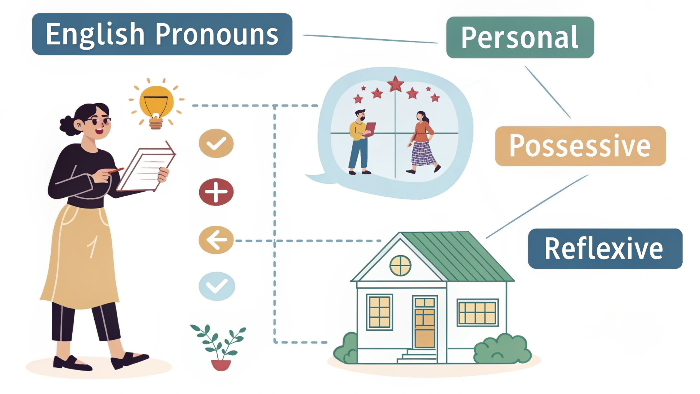
Understanding English Pronouns: Personal, Possessive, Reflexive
Reflexive Pronouns
Reflexive pronouns refer back to the subject of the sentence. They are used when the subject and the object of the sentence are the same. Reflexive pronouns are formed by adding -self (singular) or -selves (plural) to the personal pronouns.
Reflexive Pronouns
Myself: “I did it myself.”
Yourself: “You should be proud of yourself.”
Himself: “He hurt himself while playing football.”
Herself: “She made the cake herself.”
Itself: “The dog cleaned itself after the walk.”
Ourselves: “We enjoyed the concert ourselves.”
Yourselves: “Did you enjoy yourselves at the party?”
Themselves: “They fixed the car themselves.”
Reflexive pronouns are also used for emphasis (called emphatic pronouns):
“I myself will take care of it.”
“He himself solved the problem.”
Common Mistakes with Pronouns
Using the wrong form of personal pronouns: Be careful to use the correct form based on whether the pronoun is the subject or object of the sentence.
Incorrect: “She gave the book to I.”
Correct: “She gave the book to me.”
Confusing possessive pronouns and possessive adjectives: Remember, possessive adjectives are used before a noun, and possessive pronouns stand alone.
Incorrect: “That book is my.”
Correct: “That book is mine.”
Incorrect reflexive pronoun usage: Reflexive pronouns should only be used when the subject and object are the same.
Incorrect: “I saw myself in the mirror.” (Correct if looking at your reflection)
Incorrect: “She called herself.” (Should be “She called me.”)
Tips for Using Pronouns Correctly
Pay attention to the context: Always consider whether the pronoun is replacing a subject, object, or indicating possession.
Ensure agreement in number and gender: Pronouns should match the noun they replace in terms of number (singular/plural) and gender (he, she, it, etc.).
Use reflexive pronouns for emphasis or when the subject and object are the same: Don’t overuse reflexive pronouns unnecessarily, but use them to add clarity or emphasis.
Conclusion
Pronouns are a key element of English grammar, and understanding how to use them correctly is vital for clear and precise communication. Personal pronouns replace specific nouns and change based on subject and object, while possessive pronouns indicate ownership,
and reflexive pronouns refer back to the subject of the sentence. By learning the correct use of these pronouns, you can avoid common mistakes and speak and write English more naturally and fluently.
See also:
Easy Grammar Quiz: Test Your English Skills
Boost your vocabulary skills with challenging quizzes

